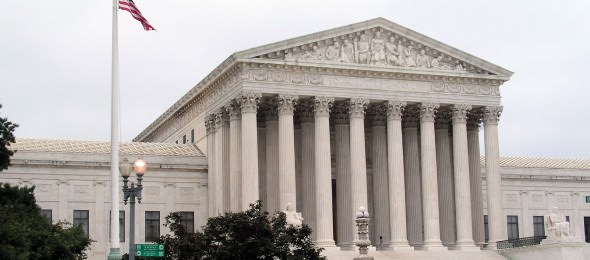Professors Peter B. Rutledge, University of Georgia Law School, and Christopher R. Drahozal, University of Kansas School of Law, have authored a paper that uses empirical evidence to examine the effect the United States Supreme Court’s decision in AT&T Mobility LLC v. Concepcion has had on arbitration clauses in business contracts. In ‘Sticky’ Arbitration Clauses?: The Use of Arbitration Clauses after Concepcion and Amex, the authors also discuss the potential impact the high court’s recent decision in American Express Cos. v. Italian Colors Restaurant may have on business arbitration clauses in the future.
Here is the abstract:
We present the results of the first empirical study of the extent to which businesses have switched to arbitration after AT&T Mobility LLC v. Concepcion. After the Supreme Court’s decision in Concepcion, commentators predicted that every business soon would use an arbitration clause, coupled with a class arbitration waiver, in their standard form contracts to avoid the risk of class actions. We examine two samples of franchise agreements: one sample in which we track changes in arbitration clauses since 1999, and a broader sample focusing on changes since 2011, immediately before Concepcion was decided. Our central finding is consistent across both samples of franchise agreements: the use of arbitration clauses in franchise agreements has increased since Concepcion, but not dramatically, and most franchisors have not switched to arbitration. While our results necessarily are limited to franchise agreements and may not be generalizable to consumer and employment contracts, they nonetheless provide valuable evidence on how businesses are responding to Concepcion.
Given our finding that only a handful of franchisors have switched to arbitration clauses since Concepcion, the next question is “why not”? We reexamine the assumptions underlying the predictions of a switch to arbitration ? that there is no reason for a business not to use an arbitral class waiver and that businesses readily and costlessly can and will modify their form contracts ? and find reason to question both. By using an arbitration clause, businesses do more than simply contract out of class actions: they contract for a bundle of dispute resolution services, including, for example, a very limited right to appeal. For businesses that perceive themselves as unlikely to be sued in a class action, these “bundling costs” may discourage them from using an arbitration clause. In addition, even standard form contracts might be sticky ? i.e., resistant to change even if change might be in the business’s best interest. We find empirical support for both possible explanations for why many franchisors have not begun using arbitration clauses after Concepcion.
Finally, we consider the potential implications of the Court’s subsequent decision in American Express Cos. v. Italian Colors Restaurant for the future use of arbitration clauses. To the extent bundling costs deter the use of arbitral class waivers, we still would not expect all or most businesses to switch to arbitration even after Amex. Likewise, to the extent contract stickiness explains the limited switch to arbitration, Amex will have limited effect. In fact, Amex might actually make class action waivers that are not part of an arbitration clause more attractive than before. Although on its facts Amex addresses the enforceability of arbitral class waivers, much of the Court’s reasoning applies as well to non-arbitral class waivers, which avoid the bundling costs of an arbitral class waiver. Of course, even after Amex much legal uncertainty remains about the enforceability of non-arbitral class waivers. But on this broad interpretation, Amex on the margin increases the attractiveness of non-arbitral class waivers and might result in some uptick in their use (an increase that was occurring even before Amex, at least in franchise agreements).
This and other scholarly articles written by Professors Rutledge and Drahozal may be downloaded from the Social Science Research Network.














